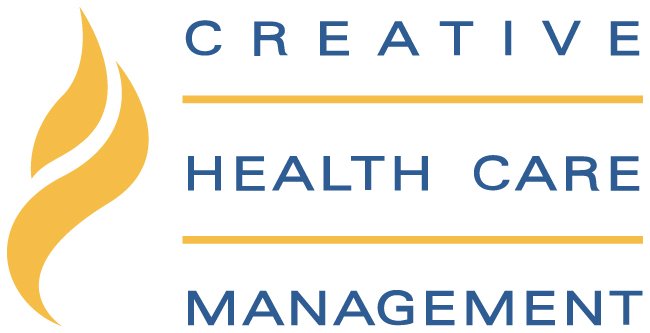Navigating the pathway to become a director of nursing requires a blend of clinical proficiency and administrative acumen. This article cuts through the complexities of the role, outlining the key responsibilities, educational requirements, and skill sets needed, while offering a glimpse into the career trajectory and earnings of a nursing salary in this position and most importantly becoming a nursing leader.
Important Points to Cover
- Nursing Directors play a multifaceted role in healthcare organizations that span managerial, administrative, and patient care responsibilities, requiring a blend of leadership, empathy, and clinical expertise.
- Becoming a Director of Nursing involves a combination of advanced education, such as MSN or DNP degrees, and progressive clinical and managerial experience, often enhanced by specialized certifications like DNS-CT, NE-BC, or CENP.
- Director of Nursing, alongside of the Chief Nursing Officer, influence healthcare quality and staff performance in various settings. They play a key role in achieving recognition for nursing excellence and must embrace ongoing education and technological advancements to lead effectively.
Exploring the Role of a Nursing Director

In the dynamic healthcare domain, Nursing Directors have a multifaceted role that includes:
- Overseeing nursing services
- Coordinating with medical teams
- Serving as a liaison between nursing staff, doctors, and healthcare administrators
- Developing goals for the nursing department
- Managing risk
- Ensuring compliance with healthcare regulations
The Director of Nursing acts as the guiding force for the nursing staff and plays a crucial role in the overall functioning of healthcare organizations.
However, a truly exceptional Nursing Director stands out by:
- Cultivating a positive workplace culture
- Effectively communicating the organization’s vision
- Building relationships throughout the organization
- Engaging with patients’ families
- Striving for improvements in overall healthcare performance
Defining the Position: What Is a Director of Nursing?
Assuming the role of Director of Nursing is a significant undertaking. As the head of the nursing staff, they play a crucial role in:
- Training and supporting other nurses
- Organizing and overseeing nursing operations
- Developing an efficient, high-quality care environment
- Managing budgets
- Supervising nursing staff
- Ensuring the smooth functioning of the nursing department
What sets apart a Nursing Director? It’s the unique blend of:
- Leadership
- Management
- Patience
- Perseverance
- Passion for providing care
- Empathy
They are the comforting presence in challenging situations, ensuring the wellbeing of patients and staff.
The Intersection of Administration and Care
For Nursing Directors, achieving a balance between administrative tasks and direct patient care can be a delicate act. They are responsible for:
- Maintaining a high standard of care across all facets of healthcare delivery
- Direct patient care
- Medication administration
- Medical device management
- Responding to emergencies
- Effectively overseeing complex healthcare operations and quality management
- Keeping the administrative wheels turning.
With the advent of the digital age, health informatics tools have become indispensable for Nursing Directors. These tools aid in reducing clinical distractions, efficiently organizing electronic health record data, and enhancing staff productivity. This, in turn, supports quality healthcare delivery and organizational cost-efficiency.
Pathways to Nursing Leadership

The journey towards becoming a Director of Nursing “DON” or Chief Nursing Officer “CNO” is one of continuous learning and development. It begins with an undergraduate nursing degree and registered nurse qualification. Aspiring registered nurses then pursue advanced education such as a Master of Science in Nursing (MSN), Doctor of Nursing Practice (DNP), or even dual master’s degrees. Leadership positions often require a master’s degree in nursing, healthcare administration, or nursing leadership, with some roles suggesting or requiring doctoral degrees as well.
The road to becoming a Director of Nursing is marked by progression through roles such as:
- Charge nurse
- Nurse manager
- Clinical leader
- Department manager
This journey requires at years of managerial experience along with a clinical nursing background. But learning doesn’t end at acquiring degrees and certifications. Supplementing nursing education with classes in business, ethics, healthcare policy, or finance enriches a nurse leader’s skill set, preparing them to meet various administrative and operational challenges.
From Registered Nurse to Leader
The role of a nursing director is a fusion of clinical nursing expertise with vital business and leadership skills. They not only provide patient care but also handle the business side of healthcare, such as budgeting, staffing, and policy-making. These critical leadership and business skills for a nursing director are developed through continuous education and experience.
It is this balance of bedside clinical nursing experience, clinical expertise, and leadership acumen that propels a registered nurse to the helm of nursing leadership as a chief nursing officer.
Certifications that Elevate Your Profile
On the path to becoming a Nursing Director, securing pertinent certifications is a key milestone. These certifications demonstrate specialized knowledge and leadership competencies within the nursing field, thereby giving an edge over the competition. Certifications such as the Director of Nursing Services – Certification (DNS-CT), Nurse Executive Certification (NE-BC), and Certified in Executive Nursing Practice (CENP) validate the expertise and skills of Nursing Directors, thus elevating their professional profile.
Informatics Nursing Certification (RN-BC) caters to nursing administrators focusing on the intersection of healthcare and information technology. Meanwhile, the Certified Nurse Manager and Leader (CNML) credential underpins skills in financial management and performance improvement. Acquiring these certifications is much like adding feathers to one’s cap, making the nursing director more attractive to potential employers.
Navigating the Workplace: Where Nursing Directors Thrive

Nursing Directors, alternatively known as medical and health services managers, operate in a variety of healthcare settings, including hospitals, residential care facilities, and other healthcare service offices. They might be found in an office setting within a healthcare facility they manage, or in a central corporate location, depending on their area of specialty, such as executive nursing administration. A key aspect of their role involves overseeing nursing personnel operations to ensure efficient and effective patient care.
In acute care settings, Nursing Directors take on supervisory roles, ensuring effective nursing care for critical care patients, preparation for surgery, and care after operations. Within long-term care facilities, they establish and nurture relationships with residents, guiding their staff to cater to the unique needs and preferences of the elderly. In outpatient care centers, they manage nursing services to ensure the delivery of quality care in non-hospital settings, and in home health services, they ensure high-quality nursing care is provided to patients in their homes.
Specialized settings like psychiatric facilities, mental health clinics, rehabilitation centers, and Military and Veterans Affairs hospitals also employ Nursing Directors. Their roles in these settings involve:
- Coordinating nursing care for patients recovering from injuries or surgeries
- Managing care for active-duty personnel, veterans, and their families
- Ensuring patient care and staff training in mental health settings
The diverse settings in which Nursing Directors serve reflect the vast scope of their role and the myriad opportunities available for them to thrive.
Salary Insights for Nursing Directors

The remuneration for Nursing Directors signifies their substantial role in healthcare. As per the U.S. Bureau of Labor Statistics, the median annual salary for Nursing Directors is $99,730, with an average of $164,943 as of December 27, 2023. The salary range typically falls between $144,310 and $190,116, with top earners receiving around $213,035.
Understanding the Financial Picture
Numerous factors shape the financial landscape for a Director of Nursing. It’s not just their background and certifications that matter, but also their years in their professional role. Factors such as:
- Location
- Education
- Certification
- Skills
- Work history
- Years in the profession
Various factors can influence the salary ranges for Nursing Directors, including nursing salaries in general, as well as the average nursing salary.
For instance, areas like San Francisco, CA, offer salaries considerably above the national average, whereas Miami, FL offers salaries slightly below the national average. Thus, it’s worth noting that the financial rewards of being a Nursing Director can vary based on several factors, but the intrinsic rewards of leading the charge in nursing care remain unparalleled.
Enhancing Skills for Effective Management
Nursing leadership goes beyond mere team management. It combines organizational skills, time management, ethical practice, and professional standards evaluation to guide decisions and maintain accountability. Nursing directors build trust with staff by being accessible, respectful, and communicating collaboratively, which unifies the team towards common goals.
Leadership in nursing is exemplified through actions that inspire and influence teams, fostering vital relationships, and employing critical thinking for organizational decisions. Flexibility in leadership style, such as transformational or democratic, allows nursing directors to adapt to different situations and settings, enhancing management effectiveness.
Moreover, managing former peers with diplomacy and acknowledging and rewarding team achievements promotes teamwork and increases staff satisfaction, thereby enhancing patient outcomes. The ability to navigate technological changes, fluctuating healthcare environments, and promoting continuous professional development are crucial for Nursing Directors to stay relevant and lead their teams effectively.
Building Strong Teams and Culture
Nursing Directors are instrumental in shaping robust teams and nurturing a positive workplace environment. Creating a supportive work environment makes nurses feel appreciated and respected, which is essential for team morale. They achieve this by accelerating role acceptance through team collaboration and providing opportunities for nurses to engage in professional development, mentorship, and coaching.
Implementing Relationship-Based Care programs encourages:
- Shared governance and active participation among colleagues
- Establishing relationships within the unit and organization
- Streamlining processes
- Effectively managing priorities
These factors are instrumental for nursing directors to develop strong, efficient, and cohesive teams.
The Impact of Magnet® Recognition on Nursing Leadership
Magnet recognition, a highly sought-after distinction, signifies a hospital’s dedication to nursing excellence and leadership. It is essential for the institution’s survival and success, including attracting and keeping nursing talent. Nursing Directors play a pivotal role in this journey by facilitating the integration of strategic goals to enhance patient outcomes and embodying and promoting Magnet principles to elevate the quality of care delivered by the nursing staff.
Through Relationship-Based Care and other innovative models, Nursing Directors influence cultural transformations within healthcare organizations, thereby supporting the foundational requirements for Magnet recognition. Undoubtedly, the Magnet journey is a testament to the commitment and dedication of Nursing Directors in their relentless pursuit of nursing excellence.
Advancing Through Continuing Education and Professional Development
In the rapidly changing healthcare sector, ongoing education and professional development are crucial for staying current and honing one’s skills. Nursing leaders can gain significant insights and skills through Relationship-Based Care® (RBC), improving safety, quality, and patient engagement.
Programs from Creative Health Care management “CHCM” like Re-Igniting the Spirit of Caring (RSC), Leading an Empowered Organization (LEO), and See me as a Person significantly enhance the engagement and effectiveness of healthcare leaders. Additionally, becoming certified in Lean Six Sigma can improve a nurse’s prospects of being selected for leadership positions.
Membership in professional organizations like the American Nurses Association portrays a commitment to career advancement and opens up valuable networking opportunities. Finding a mentor within leadership and building a network of guidance accelerates the journey from a registered nurse to a nursing leader. Thus, ongoing education is essential for Nursing Directors to keep abreast of healthcare changes and to effectively guide their staff as mentors.
Technology and Innovation in Nursing Administration

In today’s digital era, technology and innovation are integral to nursing administration. Electronic Health Records (EHRs) are integral to Nursing Directors’ tasks, providing accurate patient information, enabling real-time record updates, reducing errors, and integrating care protocols.
Advanced Information Technologies (AIT) necessitate that nursing leaders interpret data from information systems, requiring involvement in developing digital services to meet their team’s needs. Digital technologies like email, video conferencing, and clinical documentation systems have changed hospital organization and nurse leader communication methods.
Thus, strong digital capabilities and a positive stance towards digitalization have become essential for nursing leaders.
Collaboration with Creative Health Care Management
A partnership with Creative Health Care Management (CHCM) offers invaluable assistance to Nursing Directors seeking to drive improvements, cultivate resilience, and prepare for Magnet designation. CHCM boasts a fantastic success rate for hospitals they’ve partnered with for Magnet Journey® support.
CHCM’s comprehensive support includes readiness assessments, mentoring, and site visit preparation specifically tailored for Magnet recognition. Through educational resources such as ‘Advancing Relationship-Based Cultures,’ Nursing Directors can establish high-performing teams and positive clinical environments.
Thus, the partnership between Nursing Directors and CHCM serves as a cornerstone for enhancing healthcare management and achieving excellence.
Summary
From understanding the role of a Nursing Director to exploring the pathways to nursing leadership, we have explained the diverse facets of becoming a Nursing Director. We’ve gone over the significance of continuing education, professional development, technology, and collaboration in shaping a successful nursing leader. As the healthcare landscape continues to evolve, the role of Nursing Directors will continue to be pivotal in leading the charge. Remember, the path to leadership is a journey, and each step taken is a stride towards making a difference in the world of healthcare.
Frequently Asked Questions
What is the role of the director of nursing?
The director of nursing plays a crucial role in a healthcare organization, overseeing staff hiring, budgeting, policy implementation, and goal setting.
What is the highest salary for a director of nursing?
The highest salary for a director of nursing in the US can range from $56,913 to $570,045, with an average of $127,413. This information is based on data from the U.S. Bureau of Labor Statistics (BLS) from 2022.
Is director of nursing the same as a chief nursing officer?
In conclusion, the Director of Nursing (DON) and Chief Nursing Officer roles differ in their scope of responsibility, with the DON having a broader oversight of multiple nursing units, programs, or departments. While the Chief Nursing Officer often answers direct to the CEO and Board of Directors. Therefore, they are not the same. However, in smaller facilities, a Chief Nursing Officer may not be needed.
What is the average salary for director of nursing in Ohio?
The average salary for a Director of Nursing in Ohio is $161,771, with a typical range between $141,535 and $186,460.
What qualifications are needed to become a Nursing Director?
To become a Nursing Director, one needs an undergraduate nursing degree, registered nurse qualification, advanced education (such as MSN or DNP), relevant certifications, and managerial experience.
Sources:
https://nurse.org/resources/nursing-director/
https://www.ahu.edu/blog/director-of-nursing
https://www.salary.com/research/salary/benchmark/nursing-director-salary
https://www.registerednursing.org/specialty/director-of-nursing/
https://online.hpu.edu/blog/chief-nursing-officer-vs-director-of-nursing
https://www.bls.gov/ooh/management/medical-and-health-services-managers.htm
https://www.bls.gov/ooh/healthcare/registered-nurses.htm





